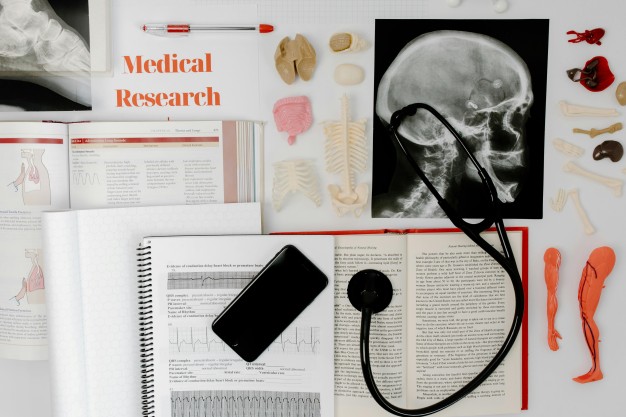Getting into the University of Oxford’s medical program (BM BCh) is one of the toughest academic challenges in the UK.
The competition is fierce. For Indian applicants, a major hurdle is the strict government-imposed quota on international medical students. Oxford’s Medical School can only accept a maximum of 14 international students each year for its standard A100 Medicine course.
This tiny number of available spots creates a huge bottleneck, as only about 32 international applicants are shortlisted for an interview. This shows just how few students make it past the first round.
So, are you wondering how to get into Oxford Medical School from India? This guide will walk you through that.
How Hard is it to get into Oxford?
It is fair to say that Oxford Medicine is very competitive.
In 2023, the offer rate was around 9.60%. Other data put the offer rate a bit higher, at 11.3%. This means that for every 100 people who apply, only about 10 or 11 get an offer.
In 2024, there were over 1,500 applicants for about 170 places. This makes it one of the most competitive medical schools in the UK.
The numbers are only part of the story, though. They reveal a very important part of the process. The intense competition happens in the initial stages.
The University Clinical Aptitude Test (UCAT) and your grades are used for shortlisting. Only about 25% of applicants are invited for medical school interviews. That is a huge reduction in the number of people the medical admission tutors consider.
What is Oxford Looking for?
Oxford is not just looking for top grades, but well-rounded individuals. It follows a holistic admission process. Grades and test scores are important, but so are your personal qualities. Here, we’ll break down what Oxford exactly looks for when evaluating applications.
1. Academic Excellence
Your academic record is the first thing the university looks at to figure out if you meet their standards.
The standard entry requirement for the Medicine course is achieving A*AA in three A-levels. This is a very high bar and a sign of the university’s commitment to finding the brightest minds.
For Indian applicants, this means you need to have exceptionally high scores in your Class 12 board exams.
Oxford accepts the All India Senior School Certificate Examination (CBSE) and the Indian School Certificate (CISCE). To meet the A*AA requirement, however, you need to achieve very high grades.
For the CBSE board, this means A1 grades in your most important subjects. And as far as the CISCE board is concerned, it mandates a minimum overall grade of 90%, with at least 95% in key subjects and 85% in all others.
Note: Oxford does not accept state board exams, the NIOS Year XII qualification, or the NEET and JEE entrance exams for direct entry to the Medicine program. If you have qualifications from these boards, you may need to pursue an alternative qualification like A-levels to be considered for an Oxford application.
2. Critical Thinking Skills

Oxford values a student’s ability to think deeply, not just to memorise facts. The university looks for problem-solving, critical thinking, and an analytical approach. Medical admission tutors want to see how you think, not just what you know.
During the interview, tutors will give you unseen material to work through. This might be an article or a graph. They want to see your logical process. They will ask unusual questions to know your thought process and how you apply ethical principles to a new situation.
This is a preview of the famous Oxford tutorial system. It shows them if you will thrive in this environment.
3. Passion for Your Subject
Medical admissions tutors are looking for a genuine and deep interest in the subject.
They want to be sure you are not just applying because of your parents’ wishes or because of the prestige. You need to show that you have gone beyond your school syllabus to explore Medicine on your own. This is where your personal statement becomes a powerful tool.
The personal statement is your chance to tell your story. Instead of cliché phrases, use a specific, personal story or a detailed example from an experience that changed your perspective.
Describe what you learned and how it shaped your views on medicine. Tutors want to see that you understand the realities of the profession. Your passion should shine through in every sentence, showing that your interest is sincere and well-informed.
How to Increase Your Chances of Getting into Oxford Medicine?
So, how to get into Oxford Medical School from India when competition is so intense? The key is preparation. Here’s how to build a strong application:
1. Show Your Love for Science Beyond the Syllabus
Extracurriculars are valuable for demonstrating a well-rounded personality. But the most effective activities for an Oxford Medicine application are supercurriculars.
To stand out, you must go beyond what is taught in your textbooks. Supercurricular activities show that you are truly committed to a career in medicine and science.
One of the best ways to do this is through hands-on experience. Clinical volunteer work in a hospital, clinic, or care home shows you understand the realities of working in a healthcare setting. It also demonstrates your compassion and dedication to helping people. If you can, shadow a doctor. This provides a first-hand look at the profession.
Gaining research experience is another excellent way to demonstrate intellectual curiosity. This shows that you are interested in the advancement of medical knowledge and that you have strong analytical skills.
You can seek out opportunities at universities or in labs, or even read academic papers to understand the latest research. Reading books by doctors and scientists can also give you great material to discuss.
2. Achieve a High UCAT Score
There has been a big change to the Oxford application process. Oxford has replaced the BMAT with the UCAT for 2025 entry. All applicants for medicine must now sit the UCAT. It is a critical part of the shortlisting process.
The test is comprised of four sections: Verbal Reasoning, Decision Making, Quantitative Reasoning, and Situational Judgement.
The first 3 sections are scored on a scale from 300 to 900 each, culminating in a total cognitive score between 900 and 2700. The Situational Judgement section is graded separately, assigning candidates to a Band from 1 to 4, with Band 1 being the highest.
A high UCAT score, besides your academic performance, is what determines whether you get an interview.
Oxford does not publish a minimum UCAT score. But analysis of the entire UK applicant pool provides a valuable benchmark.
For the 2024 admissions cycle, the mean overall cognitive score was 2523. A score of 2780 or higher placed an applicant in the top 20% of all test-takers, a range generally considered high. A score of over 2600 is often considered a strong score for securing an interview at most medical schools.
So, how do you get there? Preparation is everything. Here’s where Prep7Edu can help.
Our tailored strategies, realistic mock tests, and expert feedback are designed to help you master time management and tackle even the trickiest questions with ease. Our expert tutors don’t just teach you to answer questions, but they train you to think like the UCAT wants you to think.
3. Know the Four Pillars of Medical Ethics

Medical ethics is a core part of being a good doctor, and it is a popular topic in Oxford interviews. You should not just memorise the four pillars but understand how they apply in real-world scenarios.
The four pillars are:
- Beneficence: This means the duty to “do good”. A physician must act in the patient’s best interest.
- Non-Maleficence: This means the duty to “not do bad”. You must not cause harm to the patient.
- Autonomy: This is about respecting the patient’s right to make their own choices about their health. Patients have the right to be informed and to accept or refuse treatment.
- Justice: This means providing fair and unbiased treatment to all people. It involves ensuring equal access to healthcare and resources.
In an interview, you may be presented with an ethical dilemma where these principles conflict.
The interviewer is not looking for a single right answer. They want to see you weigh the principles, consider the different options, and demonstrate a mature and thoughtful approach.
Synthesising the Path to Success
There is no denying that getting into Oxford Medicine is competitive. But knowing how to get into Oxford Medical School from India helps you plan early and prepare strategically.
So, focus on the process. Put your energy into things that make you a better candidate.
Most importantly, don’t try to fake the kind of student you think Oxford wants. Show medical admission tutors your real passion, your real curiosity, and your real commitment to medicine. That’s what will make you memorable in a pool of strong candidates.
Need help acing the UCAT? Prep7Edu has got you covered. Our tailored practice resources, strategy-focused coaching, and realistic mock exams help you build confidence for one of the toughest parts of the application.
Your Oxford dream is big. But it’s absolutely achievable with the right preparation. Start early, stay consistent, and let us help you get there. Ready to see what we can do for you? Reach out today to book a demo session!


